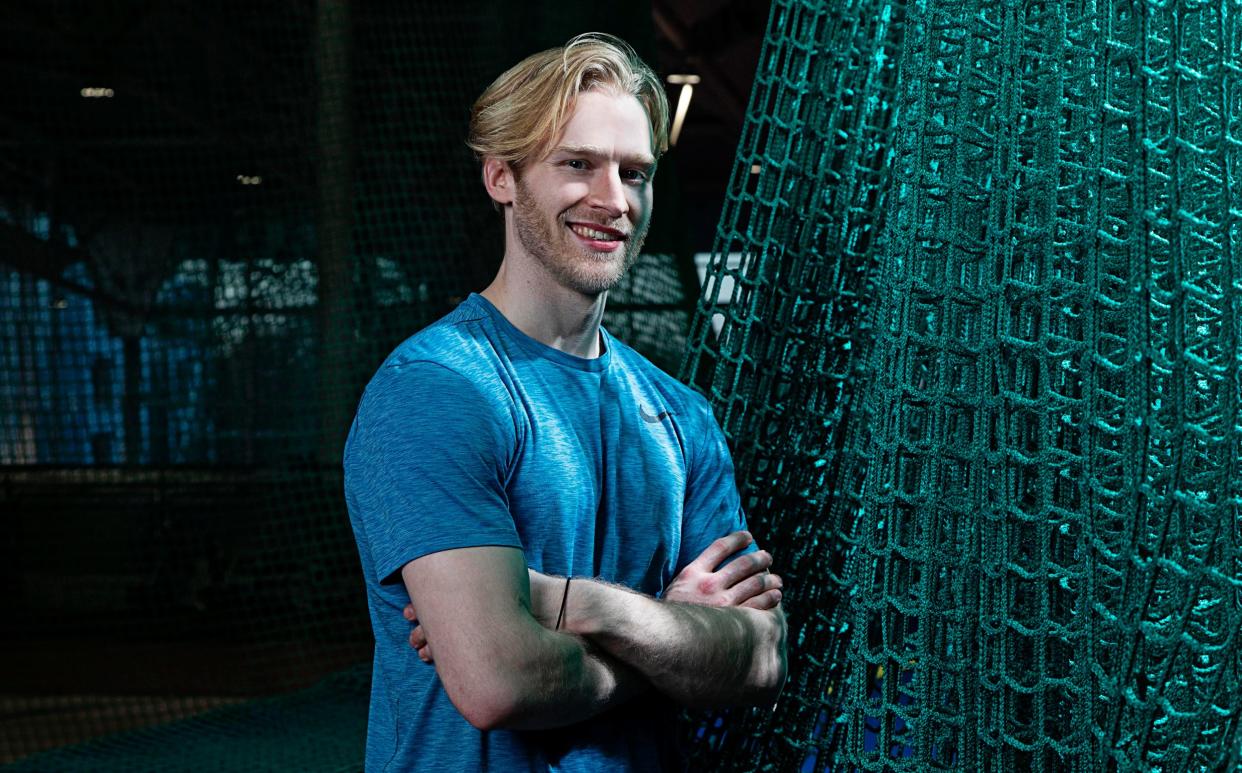Jonnie's Blade Camp, review: a pre-Paralympics shot of resilience, grit and joy

There's nothing like the Olympics to bring out the competitive crank in me. Perhaps it's ego, or maybe it's the fact that most athletes are so close in ability it makes their feats look unremarkable, but watching the Games, something stirs and you think: "Yeah, I could have a crack at that."
The 100m sprint? Come on, I’ve already done a half marathon. 10m diving? Easy – it’s just falling prettily in gonad-threatening Speedos. Modern pentathlon? Well, who really knows what goes on there.
The Paralympics, however, are another league entirely. As Jonnie’s Blade Camp (Channel 4) admirably showed, for disabled athletes, all the lingo sportswriters are liable to spray about willy-nilly feels warranted. Here's grit. Here's determination. Here's the sheer cussedness to keep grinding through pain, humiliation and repeated failure.
For this two-part series, double Paralympic-gold sprinter Jonnie Peacock took five children who, like him, were amputees, and aimed to get them running on “blades”, carbon fibre prosthetic limbs. In a pleasing touch, we were told it was the storming success of Britain’s Paralympians at the London 2012 games which encouraged the NHS to make these "blades" available to child amputees. Giving them the confidence to use them properly was the ambition of Peacock’s year-long training programme.
The opening minutes were bracing: over cute home footage of the kids, their parents discussed the moments they realised their children would be amputees. “We never expected to be in this situation. You think it will never happen to you,” said the mother of Liv, who lost her leg below the knee when a drunk driver hit their car going 78mph in a 40mph zone. Thomas, meanwhile, a cheery, tousle-haired blonde boy had to make the almost unimaginable decision, aged five, to agree to the amputation of his leg when meningitis threatened to spread. “I feel free,” were his first words when he woke up from surgery.

Resilience and joy radiated from all the participants. Aside from Harvey, an infectiously cheeky eight-year-old tumbling about with his large family, they seemed conscious that their amputations set them apart; in some ways, they were more clear-sighted than their parents. Yet there was a marvellous feeling, too, that this difference was to be celebrated, not shouldered as a burden. We saw them playing football, trampolining, practising taekwondo, and hauling themselves up again and again when they stumbled during training.
Peacock was a polished and spirited presenter. With luscious lockdown bangs like a ginger mid-Noughties Owen Wilson, and an inexhaustible supply of high-fives and “awesome jobs!”, he was as bouncy as a Scout leader at an evangelical rock festival. And it was fascinating to watch the children go through biomechanical analysis at the University of Roehampton’s high-tech sports laboratory. Festooned with motion capture devices – “the balls look like weird marshmallows,” was the verdict of Thomas – their movement was analysed, so that tailored training plans could be developed. A shout-out is also due to the scientist in charge, Dr Siobhan Strike, whose enthusiasm for dealing with giggling schoolchildren, rather than glowering Olympians, was palpable.
There could have been more contextualising. And at two hour-long episodes, the material felt a little stretched. As it was, the climax of episode one was a first attempt at a 100m sprint. Momentous, no doubt, for the children; but for the viewer, it was somewhat lightweight. Historical background to the Paralympics, the astonishing technological breakthrough of the “blades”, or even Peacock’s own ascent to athletic glory, might have lent more ballast.
But it feels curmudgeonly to quibble when Jonnie's Blade Camp so clearly belonged to the child amputees. More than any other action over the past two weeks, they embodied the Olympic motto: faster, higher, stronger. As a showcase of the transformational power of sport, you'd be hard pressed to find better. “Before I started sprinting, I was Jonnie Peacock, disabled,” noted the sprinter. “Afterwards, I was Jonnie Peacock, athlete.”


